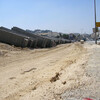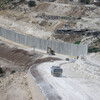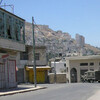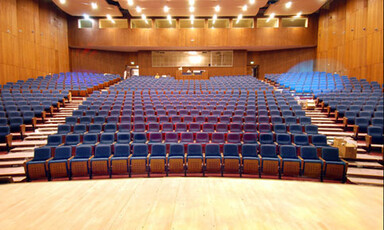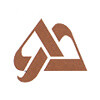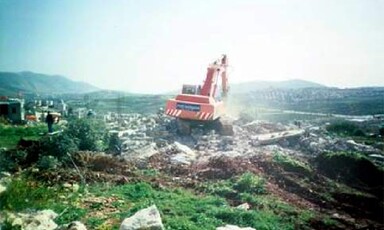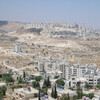
Photostory: The Wall in Bethlehem
6 July 2004
As the International Court of Justice will render its advisory opinion in the case concerning the legal consequences of the construction of the Wall in the occupied Palestinian territory on July 9, 2004, EI’s Arjan El Fassed visited Bethlehem, Beit Jala and Beit Sahour where Israel continues the construction of the Wall. Ironically, the meaning of the Hebrew name of the settlement built on Jabel Abu Ghneim, separating the Bethlehem district from Jerusalem, “Har Homa” literally means “Mountain of the Wall”. Israel’s Apartheid Wall will completely separate Beit Sahour, Beit Jala and Bethlehem from the northern parts of the West Bank. Read more about Photostory: The Wall in Bethlehem
